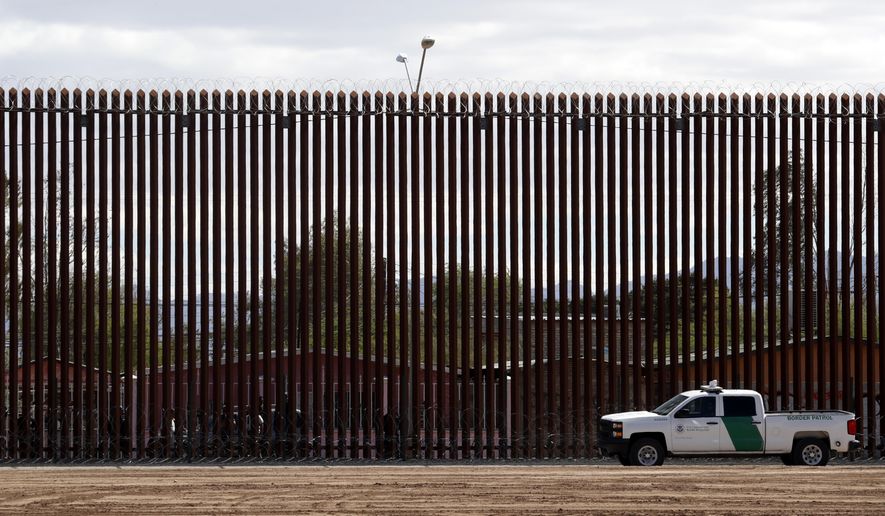The House Appropriations Committee moved Thursday to stop part of President Trump’s border emergency wall building, voting to claw back money the administration wanted to siphon from military construction and use for new fencing.
Committee Democrats also passed a separate bill that would pave the way for “Dreamers,” immigrants who came to the U.S. illegally as children, to legally work as staffers in Congress, showing an eagerness to use the 2020 spending bills to advance their immigration agenda.
“Whether we agree or disagree on the need for a wall or whether there is or is not a crisis at the border, I hope this committee can agree that funds for the wall should not be stolen from previously approved vital military construction projects that are to a dollar, a higher priority than any wall,” said Rep. Debbie Wasserman Schultz of Florida.
She and fellow Democrats, joined by one Republican, voted to approve the fiscal 2020 military construction bill with language preventing Mr. Trump from spending any money appropriated for a military construction project in the new bill, and the previous five bills, on his border wall.
Mr. Trump in February declared a border emergency and flexed his powers under the National Emergencies Act to shift money within the Pentagon for new purposes — in this case, $3.6 billion from military construction.
He also shifted $601 million from a Treasury Department forfeiture fund and $2.5 billion from a Pentagon drug interdiction fund.
Mr. Trump is sure to object to the new restrictions, and Rep. Andy Harris, Maryland Republican, objected to the framing of the issue.
“That’s pretty inappropriate, because stealing is actually a crime — no crime was committed,” Mr. Harris said. “You might not like what the president did in his emergency declaration, but the fact is it was legal.”
Still, the bill cleared committee on a near-party-line vote, 31-21, and now heads to the floor.
The overall bill provides about $108 billion in discretionary funding for military construction and veterans programs, about a $10 billion boost from 2019.
That includes about $2 billion in emergency funding tied to hurricane recovery efforts in the Southeast and close to $1 billion in special war funding that isn’t subject to spending caps.
The committee on Thursday also advanced a separate bill that funds legislative branch programs next year and includes language that would allow Dreamers in the U.S. under protection of the Obama-era Deferred Action for Childhood Arrivals program to work on Capitol Hill.
That bill passed on a party-line, 28-22, vote.
“DACA recipients have a legal right to work in the United States and contribute to our economy and our communities,” said Appropriations Committee Chairwoman Nita Lowey, New York Democrat. “It is well past time they be able to contribute to the business of Congress as well.”
Non-U.S. citizens are generally barred from working for the federal government, with some exceptions.
Overall, the legislative bill provides close to $4 billion in discretionary spending for programs in the legislative branch, which includes the House, the Capitol Police and the Congressional Budget Office. That’s about a 4% increase from 2019 levels.
Republicans said Democrats are spinning their wheels by moving forward on the spending bills without buy-in from the Republican-led Senate and the White House.
House Democrats have set a top-line discretionary spending number of close to $1.3 trillion for fiscal 2020, which is about $51 billion more than in 2019.
But any increase would require lawmakers from both parties to agree to increase spending caps Congress imposed on itself in 2011 or face the prospect of devastating across-the-board “sequester” cuts, and those negotiations are in the early stages.
Lawmakers also said they generally try to avoid poison-pill riders.
“The president’s not going to sign a bill that ties his hands, and he shouldn’t,” Mr. Harris said.
• David Sherfinski can be reached at dsherfinski@washingtontimes.com.




Please read our comment policy before commenting.